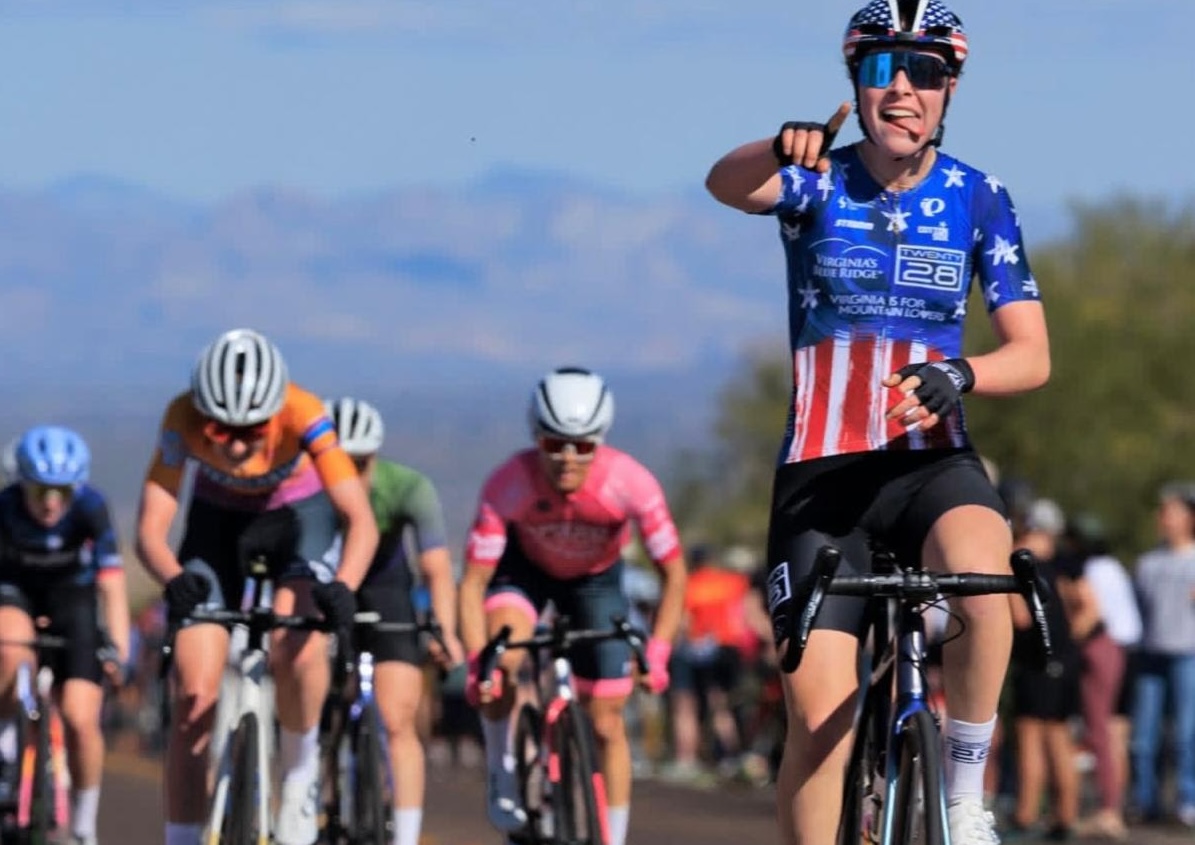You can trust Cyclingnews
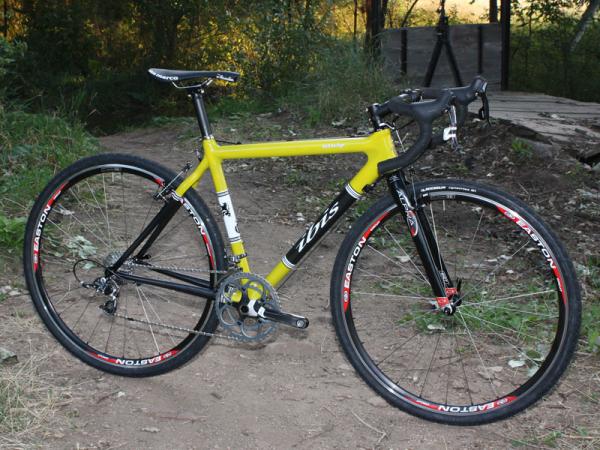
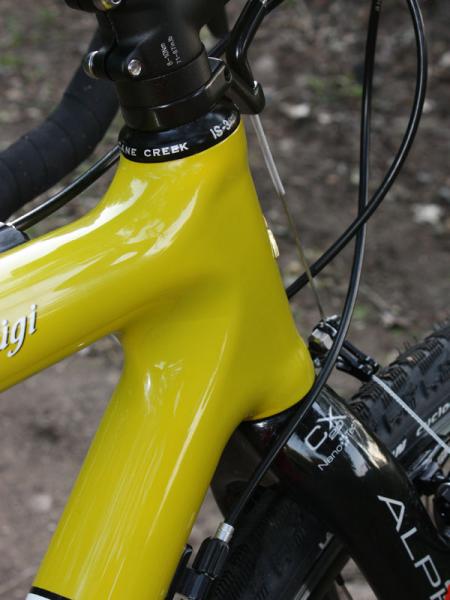
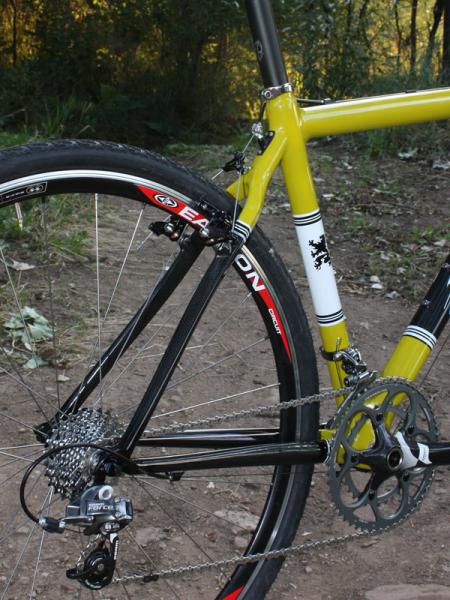
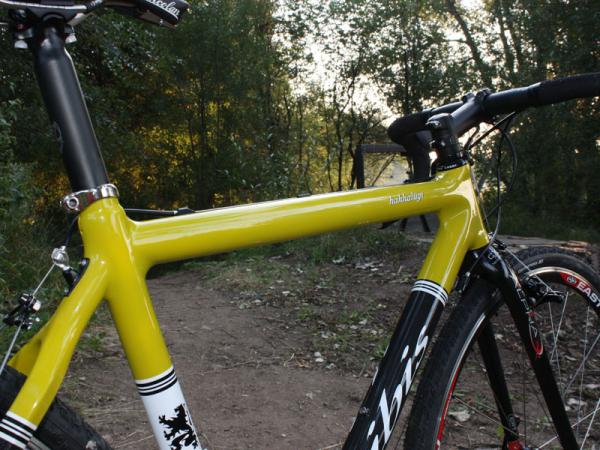
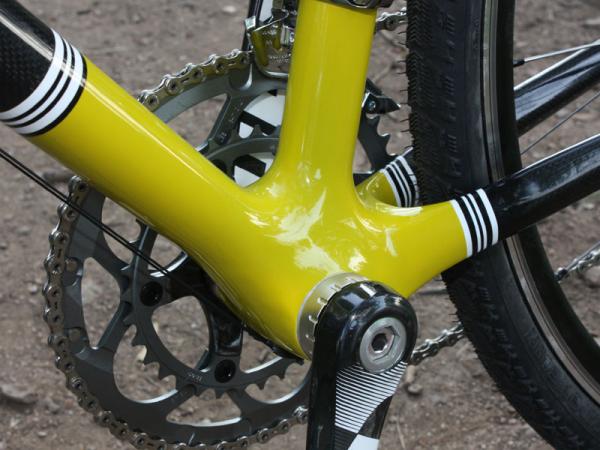
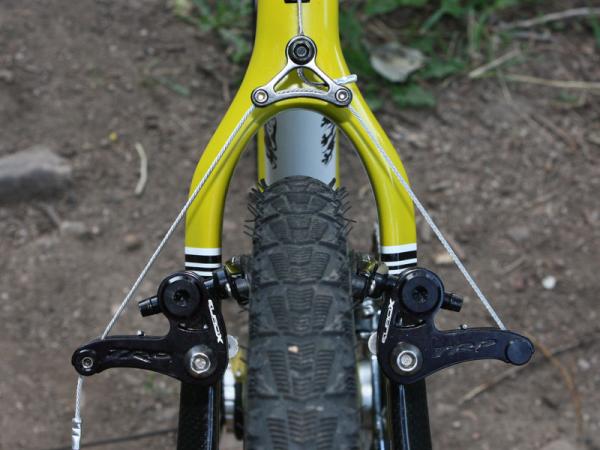
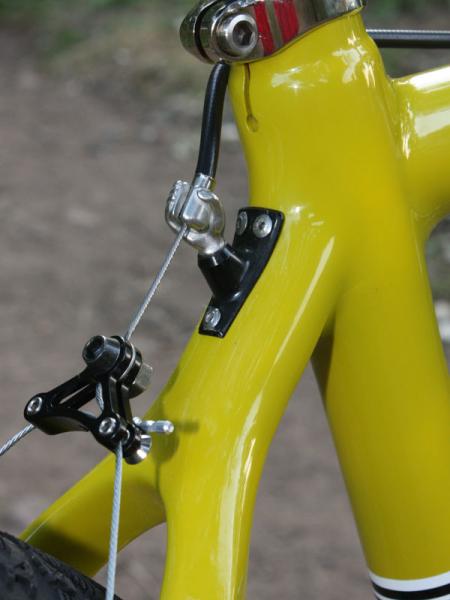
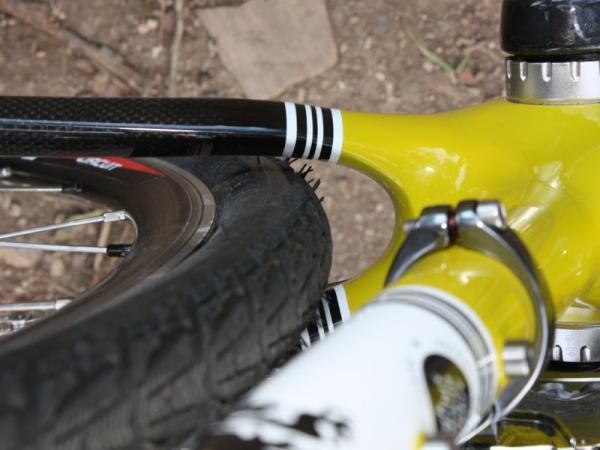
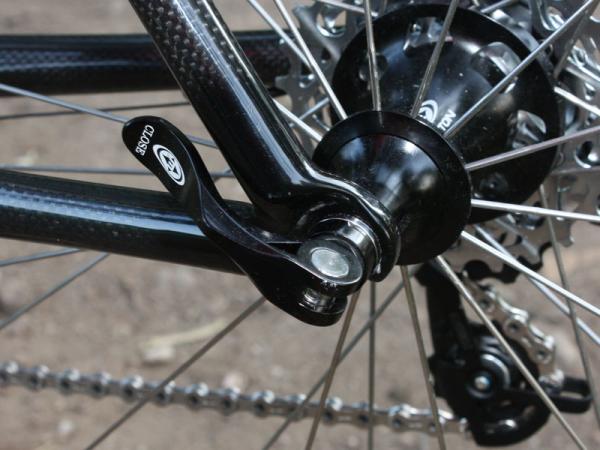
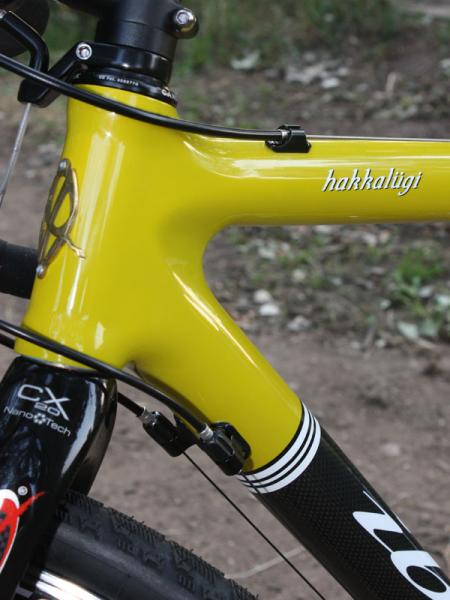
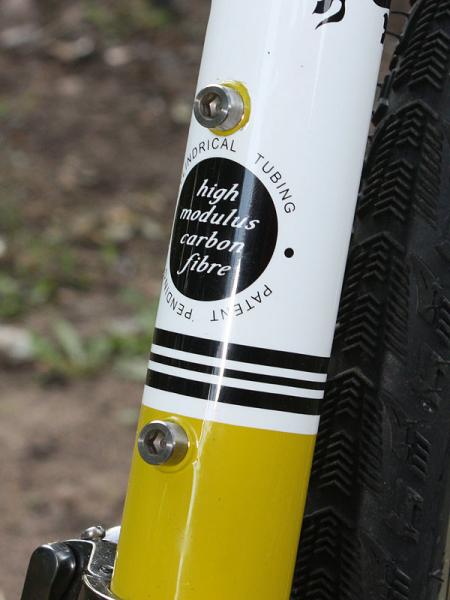
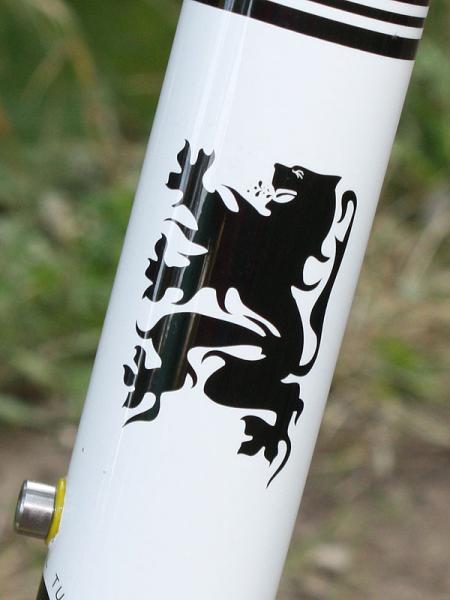
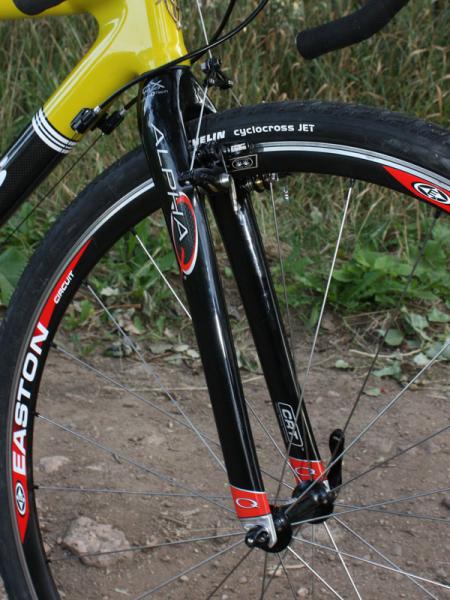
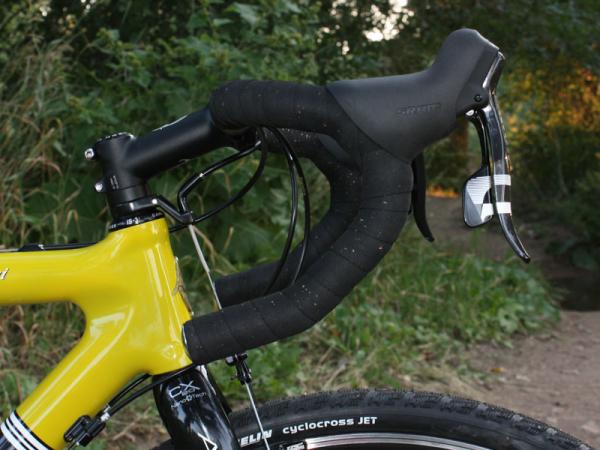
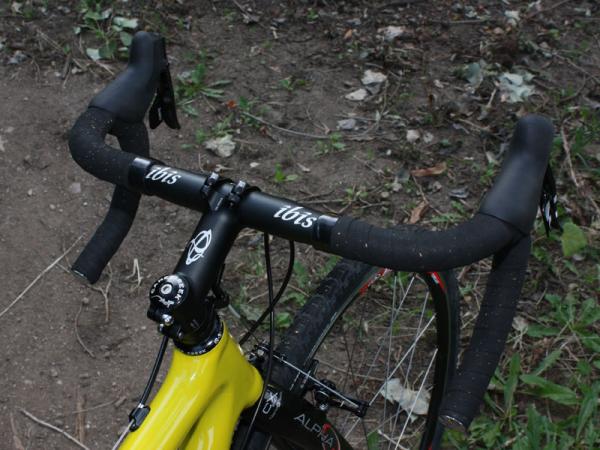
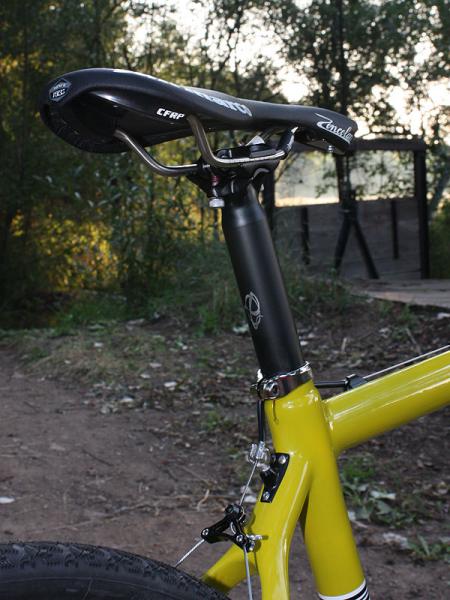
Typically we prefer to evaluate a bike solely on its performance merits but it's impossible to ignore the cheeky 'Phlegmish Yellow' paint job and sleek lines of our Ibis Hakkalügi tester.
It drew many admiring comments and curious inquiries when we took it to a local 'cross race (in hyper-bike conscious Boulder, Colorado, no less). Though undoubtedly a looker, thankfully there's some substance beneath the distinctively coloured skin, too.
When we say "some", though, we really mean "not much" as our small-sized Hakkalügi frame weighs just 1,120g (2.47lb) – on par with many top-end carbon 'crossers (and mid-level carbon road frames) and a substantial couple of hundred grams lighter than the best aluminum steeds out there.
The complete (mostly stock) SRAM Force build of our tester is similarly impressive even with somewhat pedestrian Easton Circuit clinchers installed: 7.63kg (16.82lb) without pedals.
Ride & handling
Lighter weight generally equates to faster climbing in road bike context but in cyclo-cross it's more about maneuverability. Here, the Hakkalügi's manageable mass makes for easier barrier leaps, sprightlier run-ups and a generally more nimble feel in the corners, all of which is especially noticeable towards the end of a race when your vision is blurry and you've got that telltale metallic taste in your mouth from all those blown alveoli – yum.
Excellent front triangle rigidity adds to the precise handling, but drivetrain stiffness feels one step behind, even when we swapped out the spec wheels for some more appropriate race-ready rolling stock.
The latest race content, interviews, features, reviews and expert buying guides, direct to your inbox!
The Hakkalügi capably maintains its momentum once you're at cruising speed but it seemingly takes a split second to evaluate the request when you do a full-power jump from the start line or when trying to close a gap. It's still an improvement over most aluminum 'crossers, but those coming off one of a variety of carbon superbikes out there will notice the difference.
But then again, Ibis don't intend for the 'Lügi to be strictly used in competition. According to Ibis principal Scot Nicol, the Hakkalügi is perfectly raceable but is equally at home on all-day epics exploring dirt roads and the like, and in this respect it delivers quite handily.
Though not as instantly responsive as a pure thoroughbred, it's also not as abusive either, offering a more tempered ride quality that won't beat you up once the hour mark has passed.
Handling is eminently versatile to suit, with pleasantly neutral manners on tarmac and appropriately slide-worthy characteristics on dirt.
Dual bottle mounts (not always a given in this genre) add to the versatility, too, though the Hakkalügi does stop short of rack and fender mounts.
Road bike-like construction with a bit of extra beef
The Hakkalügi closely resembles its road-going Silk SL cousin not only in appearance but also in how it's put together. Like the Silk SL, the 'Lügi uses a modular monocoque construction with a standard 1-1/8in head tube and threaded bottom bracket shell along with medium-sized chain- and seatstays terminating in compression moulded carbon dropouts. Fibre content is wisely adjusted to give the Hakkalügi more durability in case of an ugly wreck.
Geometry is suitably adapted for 'cross, however, with a slightly raised bottom bracket (by about 5mm), longer stays, and seat and head tube angles relaxed by a degree or two. As such, there's more ground clearance, the Hakkalügi is a little more stable on shaky ground, and mud clearance is impressively generous at both ends.
The Silk SL's down tube cable routing is carried over, too, though here we'd prefer either full top tube routing (like the original Hakkalügi) or a 'cross-specific two-up-one-down setup.
Down tube routing on 'cross bikes normally isn't a deal breaker but the Hakkalügi's upwardly offset down tube places the cables out further from the tube surface than usual. It's no issue while riding but doesn’t feel great in your hand when it's time to heft the bike on your shoulder.
Versatile build kit
The Hakkalügi's 'not just for cyclo-cross' SRAM Force build also reflects the bike's flexibility. Ibis fit the Hakkalügi with a 50/34T compact crank and a usefully wide 11-26T cassette but the 34T chainring is too small and the 50T too big – unless you're going to spend most of your time on general road rides, where it conveniently matches what we prefer to run in mountainous terrain anyway.
Likewise, the Michelin Jet semi-slick tires are fast rolling and voluminous on pavement but don't have enough cornering grip or float in most 'cross situations.
We also had mixed experiences with the Easton Circuit wheels and San Marco Zoncolan saddle. The wheels are perfectly competent, well built and reasonably light at about 1,650g per pair, but the non-adjustable front hub developed play shortly into the test period.
And while we've gotten along okay with the saddle on the road in the past, the nose is far too narrow and hard to be remotely comfortable on dirt.
Rounding out the package are featherweight TRP EuroX wide-profile aluminium cantilevers and a trio of Ibis house-brand bits. Thanks to the upgraded Inplace Adjust cartridge pad holders on the TRP brakes (excellent move, Ibis) toe-in can be tweaked without having to bend anything and braking performance improves over the stock EuroX accordingly.
No complaints about the Ibis bar, stem, or seatpost: none are the lightest bits around but the two-bolt post is easy to adjust and held on tight without slipping, the anatomic bar bend is comfy in the drops and the stem does its job without fanfare or worry – pretty much all you could ask.
Bear in mind that the Hakkalügi is also available with Shimano Ultegra, as a bare frame or a frameset with an Alpha Q CX20 fork (one of our favourites) so potential buyers can build it up as they desire.
Hock a loogie – or Hakkalügi!
As a dedicated 'cross racer the Hakkalügi isn't quite ideal but in the context of a do-everything road/'cross bike it hits its mark well with a versatile geometry, stiff-but-not-too-stiff ride, and notably light weight.
Build it up in dedicated CX fashion, tweak the stock build for a proper race setup or just leave it as is and enjoy the go-anywhere capability. Mountain bikers looking to explore other venues will also find the Hakkalügi an excellent one-bike alternative. All in all it's a nice return for a fabled nameplate, and the pricing is fairly reasonable too.
Pros: Lightweight, nimble handling, stiff front triangle, very good mud clearance, eye-catching aesthetics, jack-of-all-trades build kit
Cons: Not especially snappy compared to pure race bikes, less than ideal cable routing, jack-of-all-trades build kit



